Sorted by date Results 101 - 125 of 242

A hardener of the steels that have been helping to make Fords tough for more than a century and an element with unique properties that make it the key ingredient in enormous batteries to store intermittent wind- and solar-generated electricity, vanadium is a critical metal with many valences. It is vanadium's chemical valences that make this alloying metal an ideal ingredient in the redox flow batteries that scientists and governments see as the ideal large-scale storage...

Mineral exploration activity is heating up this summer in Nunavut after a yearlong hiatus sparked by restrictions and cautionary moves driven by the COVID-19 pandemic in early 2020. For the northern Canadian territory's two mine operators and a handful of advanced- and early-stage explorers, the outlook for 2021 programs is much brighter. In mid-June, the Government of Nunavut gave Agnico Eagle Mines Ltd. the green light to allow its workers living in the Kivalliq region of...

From the advancements of technology during the Bronze Age to the computers and telecommunication systems of today's Big Data Era, tin has been critical to human progress for at least 5,500 years. Sometime around 3500 BC, Sumerians living in modern day Turkey and Iran discovered that mixing a little tin with copper created bronze, an alloy that produced much more durable weapons and tools than those cast from copper alone. This cutting-edge discovery offered a strategic and...

"Please mine more nickel," these four words from Tesla CEO Elon Musk reverberated across the global mining sector and raised awareness of how fundamental nickel is to the lithium-ion batteries powering hundreds of millions of electric vehicles to come off Tesla and traditional automaker assembly lines over the next two decades. "Tesla will give you a giant contract for a long period of time if you mine nickel efficiently and in an environmentally sensitive way," Musk implored...

From jewelry at a black-tie soiree to scrubbing harmful emissions from the exhaust system of a farm truck, the six platinum group metals – platinum, palladium, rhodium, ruthenium, iridium, and osmium – are metals that are both precious and critical to the United States and Canada. Extremely rare, durable, and with a brilliance that does not tarnish, platinum and other metals in its group are a treasured choice for high-end jewelry that stands the test of time. Three of the...
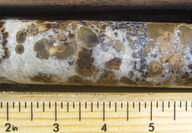
With a vision to become a leading base metals mining company, Osisko Metals Inc. is rapidly advancing exploration and engineering studies at its Pine Point project about 42 kilometers (26 miles) east of Hay River, Northwest Territories. A preliminary economic assessment completed in mid-2020 outlines a mine at Pine Point that would produce an average of 327 million pounds of zinc and 143 million lb of lead annually over an initial 10-year mine life. At an average zinc price...

Whether it is the exponential growth in electric vehicles traveling global highways, the massive need for storing energy at solar and wind electrical generating facilities, or cutting the cords on our electronic devices, the world is becoming increasingly dependent on lithium-ion batteries. And this is driving up the demand for cobalt, a critical safety ingredient in the cathodes of these energy storage cells. "Globally, the leading use is in the manufacture of cathode materia...

Cans, cups, roofs, and foil hats are likely the first things that come to mind when thinking about tin – none of which conjure images of a metal that should be considered critical to a modern country like the United States. According to a study carried out by Massachusetts Institute of Technology, however, tin is the metal expected that be most impacted by new technologies. Commissioned by Rio Tinto, the MIT study found that tin beat out more likely technology metals candidate...

Best known for its ability to resist heat and corrosion, antimony is in a wide array of consumer goods – from paints and plastics to batteries and wind turbines. This critical mineral is also used to make clearer glass for smartphones, computer screens and solar panels. "Today, antimony is used in lead-acid storage batteries for backup power and transportation; in chemicals, ceramics, and glass; in flame-retardant materials; and in heat stabilizers and plastics," the U.S. G...
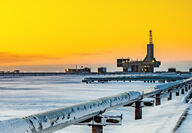
The United States is heavily dependent on China and other foreign suppliers for its barite, a mineral critical to the petroleum sector. Barite derives from barús, the Ancient Greek word for heavy, owing to an exceptionally high specific gravity for a non-metallic mineral. It is this weight that makes barite a key element to the oil and gas sector and lands the mineral on USGS' critical list. "More than 90% of the barite sold in the United States was used as a weighting agent...

America's supply of tungsten, an extremely durable metal that is vital to a broad range of American industrial sectors, is at high-risk. A recent U.S. Geological Survey assessment to identify which mineral commodities are most at risk to supply disruptions ranked tungsten near the top of the list – alongside rare earth elements, cobalt and graphite, platinum group metals and tungsten. Like many of its neighbors at the top of the mineral commodity supply risk list, much of the...
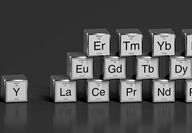
Due to their vital importance to American manufacturing and the fact that 100% of U.S. supply comes from overseas, primarily China, rare earth elements top the list of minerals and metals deemed critical to the United States. When the U.S. Geological Survey plugged in 52 critical mineral commodities into a recently developed supply risk tool, six rare earth elements – dysprosium (No. 1), yttrium (No. 2), neodymium (No. 3), lanthanum (No. 5), cerium (No. 6) and praseodymium (...

In addition to dealing a major blow to the economy, the COVID-19 pandemic has shined a spotlight on a chink in the United States' economic and security armor – an overreliance on foreign countries for the minerals and metals that lie at the frontend of American supply chains. "The COVID-19 pandemic has shown how delicate our supply chains are and that should be a wakeup call for all of us," Senate Committee on Energy & Natural Resources Chair Lisa Murkowski, R-Alaska, said dur...
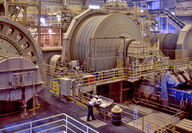
Kinross Gold Corp.'s new long-term strategy for its Fort Knox Mine is a paradigm shift for mineral exploration companies with gold projects on or near the road system within a 300-mile-radius of the iconic gold operation about 20 miles north of Fairbanks, Alaska. Under this new operating plan, Kinross is looking for Alaskan projects that can deliver high-grade ore to the underutilized 14-million-metric-ton-per-year mill at Fort Knox. "There is an economic radius around Fort...

Rising metal prices are helping to soften the blow COVID-19 has landed on Alaska's mining sector in 2020. While mining has been deemed an essential business in Alaska, which has helped keep the six large mines in the state operating during the pandemic, measures put in place to slow the spread of COVID-19 are weighing on production at some of these operations. Efforts to flatten the curve on the spread of coronavirus also disrupted several winter drill programs in Alaska,...

The U.S. Department of Interior issued two decisions that mark a major milestone along the path of permitting a road to the incredibly rich and strategically important Ambler Mining District in Northwest Alaska. On July 23, the Bureau of Land Management (BLM), with the U.S. Army Corps of Engineers, and the National Park Service (NPS) with the U.S. Federal Highway Administration, issued a record of decision that authorizes a right-of-way for the proposed 211-mile-long road...
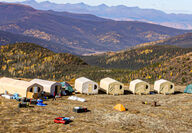
Tectonic Metals Inc. June 25 announced that it has added a new gold property in the Goodpaster Mining District and acquired a dataset that will assist the company's exploration across this gold-rich region of Alaska's Interior. The new property, known as Maple Leaf, is roughly nine miles (15 kilometers) northeast of Tectonic's Tibbs project and about 31 miles (50 kilometers) east of Northern Star Resources Ltd.'s Pogo gold mine. The Tectonic team staked this 11,840-acre...
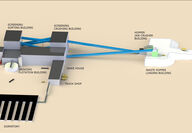
Reestablishing a mine at Osisko Metals Inc.'s Pine Point zinc-lead project in Northwest Territories could be profitable, according to the preliminary economic assessment released on June 15. The PEA outlines a mine that would produce an average of 327 million pounds of zinc and 143 million lb of lead annually over an initial 10-year mine life. At an average zinc price of US$1.15/lb and lead averaging US95 cents/lb, this operation has been calculated to produce an after-tax...

If you have watched the metals markets over the last month, you know why Alaska's mineral industry has surged, stalled, swerved, swooped, slowed, shelved and stuttered, sometimes all at the same time! Gold has gone above US$1,500 per ounce; copper pundits are predicting an increasingly dour future; zinc markets are looking to dive below $1.00 per pound; tin markets have marched strongly upward due to supply disruptions; and silver bulls are calling for annual worldwide...

Home of the famed golden beaches of Nome that have captured the imagination of millions over the past 120 years, the Bering Straits Native Corporation (BSNC) region covers the Seward Peninsula and coastal lands arcing around the eastern and southern coast of the Norton Sound in the far western reaches of Alaska. While this region may be 300 miles beyond North America's highway system, it has served as a crossroads for human activity for at least 15 millennia and will continue...

HighGold Mining Inc. has received approval to have its shares listed on the TSX Venture Exchange and some big names in gold mining and investing are lined up to be initial shareholders of the new exploration company. HighGold Mining shares, which will be listed under the symbol HIGH on the TSX.V, are expected to begin trading on Sept. 23. In connection with listing, the gold-focused exploration company closed a C$7.65 million financing on Sept. 19. This non-brokered private pl...

As the rest of the country suffers through the Dog Days of summer, Alaska is approaching the end of a topsy-turvy summer season that saw unseasonably hot, dry weather in some parts of the state during some parts of the summer, while other parts of the state have seen record rainfall and unseasonably early snowfall. Gold prices have skyrocketed over the $1,500 per ounce mark and silver prices have moved strongly up, now trading at a one-year high. However, copper and zinc are a...

The Canadian government has dedicated C$2.2 billion to clean up contaminated mine sites in the Yukon and Northwest Territories. The eight projects to be addressed with this investment are the historical Faro, United Keno Hill, Mount Nansen, Ketza River and Clinton Creek mines in the Yukon; and Giant, Cantung and Great Bear Lake mines in the Northwest Territories. This new remediation effort, Northern Abandoned Mine Reclamation Program, was introduced by the Honorable Carolyn...

Canada is one of the world's richest sources of raw commodities, not least of which are the so-called rare earth elements. While China currently dominates global production and hosts some 35 percent of the world's known resources, observers believe Canada is endowed with world-class rare earths deposits, which could account for as much as 40-50 percent of the world's REE reserves. Demand for rare earth elements, along with lithium minerals, tin and other critical materials,...

The Bristol Bay region is home to two resources that beyond a doubt earn the moniker "world-class" – an annual run of sockeye salmon that is second to none and Pebble, the largest undeveloped copper and gold deposits known to exist on Earth. These world-renowned resources, however, have stirred up controversy in this Oklahoma-sized region of Southwest Alaska, as many of the roughly 7,400 Bristol Bay residents are concerned that mining the copper, gold, molybdenum and other m...